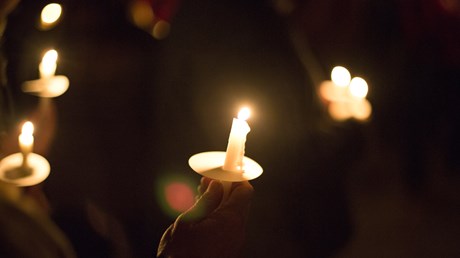But the miraculous healings in the Gospel of Mark give us a glimpse at the kingdom, not a guarantee.

Recently many joined Bethel worship leader Kalley Heiligenthal in fervent prayer for the raising of her daughter, some citing Jesus’ words Talitha koum.
I would never begrudge a grieving mother her commitment to every last hope for her child. I also respect faith that God can raise the dead. (As I wrote earlier this year for CT, I agree that credible resurrections have taken place.) But are such raisings normative? That is, should we always pray for the dead to be raised?
When Jesus sends out the Twelve, he commands them to heal the sick and raise the dead (Matt. 10:8; Luke 9:2). He extends the command to heal the sick to the 70 in Luke 10:9. In the book of Acts, God performs signs not only through the Twelve (e.g., Acts 9:41), but also through some other believers (6:8; 8:6; 9:17–18). These apparently include raising people from the dead (20:10).
But nowhere do we get the idea that God raises everyone who dies. Jesus does not try to raise his friend John the Baptist (Matt. 14:13). Believers buried and grieved for Stephen rather than raising him (Acts 8:2). A physician who shared with me his direct experience of a patient miraculously raised from the dead also recounted that God did not raise the physician’s own child when he died from leukemia.
The Bible needs to teach us about God’s power to do the extraordinary; it does not need to report as often the usual course of death, since most of us are already sadly familiar with that. This is not to condemn those who have prayed valiantly for raisings that didn’t happen; it is simply to observe that God has not guaranteed all raisings, especially when he has not initiated the prayer. (And sometimes the more personally invested we are in a particular ...
from Christianity Today Magazine https://ift.tt/35zOD8y
No comments:
Post a Comment